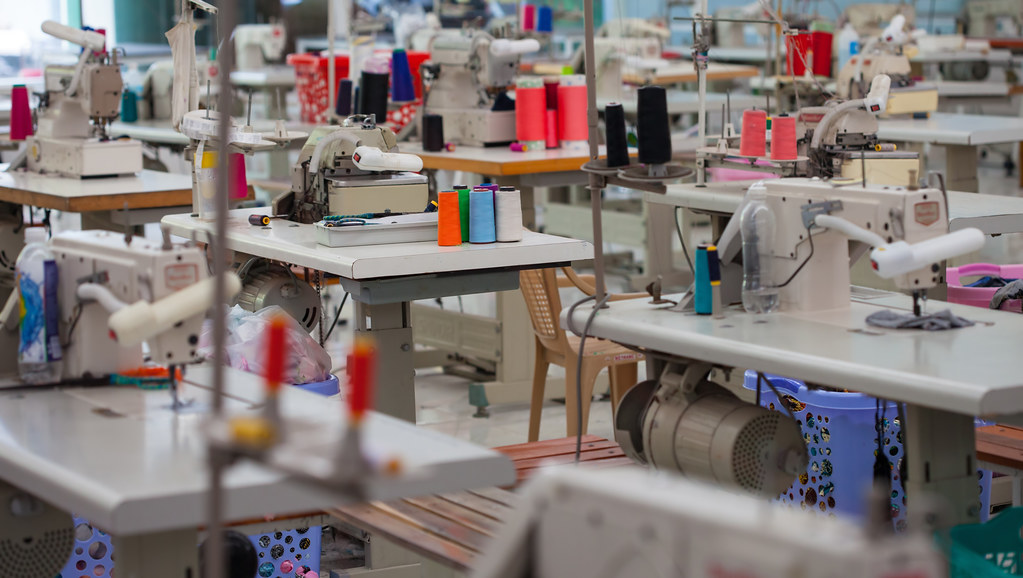Top fashion companies that are pledging to end worker exploitation in their global supply chains are hampering progress through their own irresponsible sourcing practices, concludes a new report published today on working conditions in the Southern Indian garment industry powerhouse.
Short production windows, cost pressures and constant fluctuations in orders by brands and retail chains like Nike, H&M, Adidas, Primark and Walmart make it very difficult for local suppliers to comply with the standards on decent working practice that the companies say they expect.
The South Indian garment industry clustered around Tirupur accounts for 45-50% - around $3.6 billion in 2017 - of all knitwear exports from India. Suppliers in the region have improved their working conditions over the past decade. However, heightened competition from lower-cost countries like Bangladesh and Ethiopia has meant that brands can force prices down, leaving little scope for further ethical improvements.
“When we interviewed manufacturers who supply knitwear to major global brands they explained that brands are growing louder in their demands for an end to bad labour practices but they are unwilling to alter their commercial practices to support improvements,” said Andrew Crane, Professor of Business and Society at the University of Bath’s School of Management, one of the five authors of the study.
“Brands do try to improve working conditions in their supply chains but their own sourcing practices often prevent meaningful change from happening. The demand for fast fashion at cheap prices means that brands ramp up penalties and put pressure on suppliers to deliver at low cost in short production windows. This makes it harder for suppliers to comply with the labour standards that brands expect.
“Brands need to ensure that local businesses are supported in their efforts to pursue decent work, and are not, as is all too often the case, squeezed by buyer demands that push them towards more exploitative practices,” added Professor Crane.
The research by three UK Universities (Bath, Sheffield and Royal Holloway, University of London) in Tirupur found that social audits, intended to call out exploitation, are frequently manipulated and cheated by suppliers in order to retain business with brands. Suppliers complain that such ethical certification systems are too costly and add little value.
Interviews with over 135 business leaders, workers, NGOs, unions and government agencies in the state of Tamil Nadu during 2018 uncovered considerable evidence that while top-down initiatives from brands have led to some improvements in working conditions, they have failed to eradicate labour exploitation.
“Workers told us about extensive and shocking violations of their rights including routine disregard for health and safety standards, restricted freedom of movement and verbal abuse. They also reported incidents of child and bonded labour, and told us how they suffered from gender discrimination, unfair pay, a lack of contracts, and limited freedom to speak, amongst other violations of their rights,” said co-author Genevieve LeBaron, Professor of Politics at the University of Sheffield.
Researchers find some cause for optimism from businesses at the bottom of the supply chain - especially mill owners and garment factories - who are pioneering strategies to eradicate exploitation that do not simply rely on audits.
“Business owners are bringing in initiatives to upskill workers, branding and product differentiation and investment in automation and cost-saving technologies – all of which have the potential to improve labour standards,” said Laura Spence, Professor of Business Ethics at Royal Holloway, University of London.
“They are changing their recruitment strategies, for example providing free transportation services to pick up and drop off workers as a strategy to avoid the risks of hostels which tend to restrict workers’ freedom of movement. And they are relocating manufacturing, so that workers can remain closer to home, where they have lower living costs and support from their families and communities,” added Professor Spence.
The researchers are calling for the formation of a new taskforce in Tirupur to solve the labour issues facing the industry, led by an independent organisation or chair. They highlight three key issues to achieve decent work and economic growth: freedom of movement; health and safety; and worker-driven social responsibility and have made 12 recommendations to achieve this.
- View the report, 'Decent Work and Economic Growth in the Southern Indian Garment Industry' and its recommendations;
- The research is part of the British Academy’s international programme, 'Tackling Slavery, Human Trafficking and Child Labour in Modern Business', funded by the British Academy in partnership with the UK Department for International Development;
- The research team also included Vivek Soundararajan, Associate Professor in International Management in the School of Management at the University of Bath and Michael Bloomfield, Lecturer in International Development in Bath’s Department of Social and Policy Sciences at the University of Bath.

